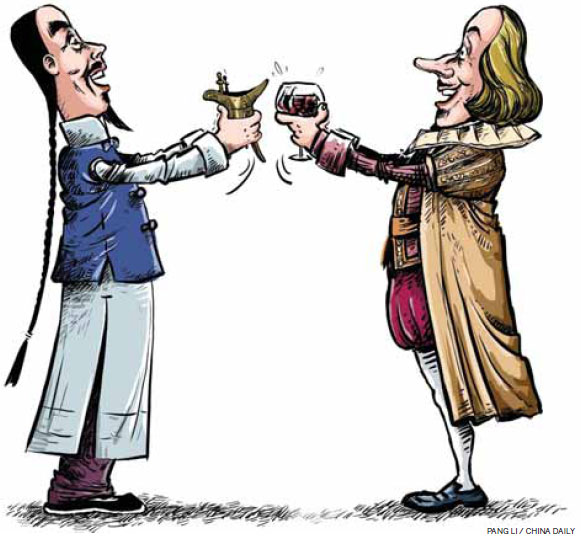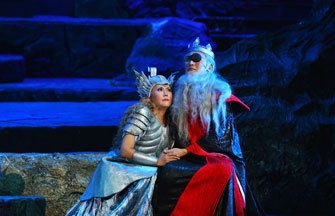China's bard?
By Raymond Zhou ( China Daily ) Updated: 2013-10-22 09:06:33
Cao Xueqin may have the status of Shakespeare in China, but translating that stature abroad is another matter, Raymond Zhou reports.
William Shakespeare (1564-1616) is the greatest author in the English-speaking world and Cao Xueqin (1715-63) the greatest novelist in Chinese history. But can Cao gain worldwide recognition as his British predecessor did, and more importantly, can he yield a string of profitable businesses like the playwright from Stratford-upon-Avon?
Those were some of the questions either discussed or implied at a Beijing forum held in the western suburb where Cao spent the later years of his life.
From the Chinese speakers, one got an impression that Cao is already globally renowned as Shakespeare, or Balzac or Tolstoy. But nothing is further from the truth.
While the academic community has long recognized Cao as the greatest Chinese novelist ever and his A Dream of Red Mansions as one of the greatest novels in the world, he is not as widely read outside China as Shakespeare is outside the English-speaking world.
We can certainly say Cao is in the league of the other titans in terms of literary achievement, but to pretend he is as widely known will only prevent us from drawing parallels that may truly shed light on his strength.
As Li Er, a Chinese novelist who has met the Italian, Swedish and French translators of A Dream of Red Mansions, said at the forum titled "The Master and the Classic: The Inheritance and Spread of Cultural Heritage" on Oct 15, "What we consider subtleties in Cao's work may elude those who read in translation."
In my opinion, the literary giant in the English language that comes closest to Cao in terms of both style and subject is Jane Austen, who has been enjoying an incredible rise in popularity in recent years.
The huge cast of female characters, the outwardly peaceful and inwardly rich arcs of narrative, and delectable and subtle dialogues are evident in both Austen, all six novels taken as a whole, and Cao.
- Mo Yan promotes Chinese literature
- Translation biggest obstacle impeding export of Chinese books
- Literature "A Dream of Red Mansions" with new ending to be on bookshelves
- Shakespeare isn't lost in translation
- West turns new page in thinking on Chinese literature
- Haven of Literature
- Translations lag behind
- Translations distort the reality
|
|
|
|
|
|
|
|























 Raymond Zhou:
Raymond Zhou: Pauline D Loh:
Pauline D Loh: Hot Pot
Hot Pot Eco China
Eco China China Dream
China Dream China Face
China Face





